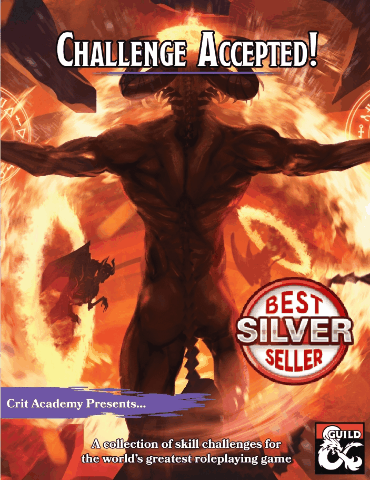Consent in Gaming
- Justin Handlin

- Feb 10, 2022
- 4 min read
Updated: Feb 20, 2022

Guest Writer: Ashley Gage
Hello, fellow adventures! Something tells me that you’re about to embark on a
brand-new campaign - Congratulations! I can feel your excitement in the air; but
with your permission, I’d like to cover an essential topic before you begin –
consent within gaming.
Ideally, this process takes place during session zero where all participants sit
down and discuss character ideas, the setting of the world, and some basic lore. If
you’re already a few sessions in, no worries! Better late than never. Bringing up
topics of conversation like this can be challenging so I’m here to walk you through
it and make it an easy and unforgettable part of your process.
Now, you may already have some sort of consent-based conversation built into your
session zero when you ask your players what they’re looking to get out of the
campaign; both as players and as characters within the world. If we can take this
line of questioning just a step further, we can learn a lot more about your players.
As a GM you can jump-start this process by clearly stating what sorts of scenes and
content you absolutely will not run as part of your campaign. By setting the tone
for your players in a confident yet gentle way, you can put everyone more at ease
discussing heavier topics. If your players don’t feel comfortable openly discussing
these topics with you, there are endless forms online that deal with ttrpg consent.
You should feel free to draw inspiration from these checklists and let them
influence your own. There are also several forms available for download for free if
you wish to utilize a pre-made form.
As always, you can be as formal or informal with information collection as you’d
like. Consent forms allow people to remain anonymous if they wish, or you can
have an open discussion and jot down notes as you go. These conversations will
change and evolve with every new campaign, and every player is going to have
their own set of boundaries. Allowing yourself to be open to these conversations
can set the tone early on for an insightful and safe campaign.
One way I like to phrase these questions to my players is, “what are your hard lines
and negotiables?” Hard lines are things people are not willing to compromise on.
These can stem from any number of places but listening to them to make sure your
game is safe for all involved should be the end goal. Even if their hard lines are
something that doesn’t bother you personally.
Negotiables, on the other hand, are just what they sound like. These are things that
your players may not be opposed to seeing within the game but aren’t necessarily
looking for. This could include something like PC death. Hearing about everyone’s
negotiables is just as helpful as learning their hard lines because it will help you
better navigate how you build your world and the types of conflicts you can dive
into.
Not every campaign is going to be a Game of Thrones-inspired blood bath, but
even the most lighthearted, comedic, clown shoes one shot should be prepped with
conversations like this in mind. No story is complete without a bit of conflict, but
you want to make sure the conflict is just as safe for everyone as it is exciting and
plot-twisty.
Make sure to subscribe to our newsletter so we can help you on your future adventures. Newsletter subscribers are also entered to win cool prizes each and every week. Check out our fellowship members for more great content. Visit our Youtube channel for our show episodes, actual play episodes, and our tips & tricks videos. Support us on Patreon to get weekly Dungeons and Dragons loot!
Another method that can be useful once a campaign starts is having “consent
cards.” Consent cards come in two different colors- red, and yellow- and every
player gets a pair. If at any point within the game someone begins to get
uncomfortable with a scene or the content being discussed, they can display their
yellow card. This can be a subtle way to signal the GM they are okay but
would like to move on from the upsetting content. A red card signifies a hard stop.
The game should pause if this happens to allow the player space for whatever they
need to return to gameplay safely and comfortably.
Now comes the hard part- what if someone breaks a hard line? If you’re ever
playing in a game that violates the consent set in place during session zero, please
talk to your GM or fellow players. Let them know this was not okay and restate
that this is a boundary you are not willing to compromise on. If this becomes a
recurring experience, talk to the GM about removing the offending player. They
should not be allowed to repeatedly compromise your safety and ruin gameplay for
everyone involved. If all else fails my best advice is to leave the campaign,
especially if you’ve already brought this issue to their attention multiple times.
This is never a piece of advice I want to give to anyone, but your mental health and
wellbeing are more important than a game, and you deserve to be with a group
that is going to respect you and your boundaries.
My wish for you all is to have a safe and enjoyable space to play your favorite
ttrpg systems in a healthy and supportive environment. These kinds of
conversations can be uncomfortable at times, but the short amount of time having
them before any gameplay actually begins is vital to making sure everyone has a
fulfilling experience. We all love ttrpg’s and we all deserve to be treated with
respect while being a part of this community. The best way to ensure that is to lead
by example. Happy Trails!
Thank you for reading our blog. If you enjoy the content and want to support us, visit our store or follow us on social media, join us on discord, youtube, and leave us a review.
Keep your blades sharp and spells prepared heroes!
*Crit Academy is an Affiliate of Amazon, DMsguild and DriveThruRPG*






















Comments